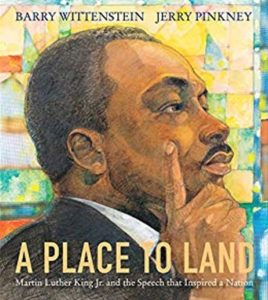Our final read aloud for the 2018-2019 school year was
The Season of Styx Malone by Kekla Magoon. School had already been out for almost a week when the
Boston Globe-Horn Book Award winners were announced, so I had to do a private happy dance that Styx Malone was the winner for fiction and poetry!
Back in November of 2018, I had read Jill Yamasawa Fletcher's blog post on the
NCTE blog, "The Magic of One-Pagers," and the last week of school seemed like a good time to give one-pagers a low-stakes whirl.
I was drawn to the idea of one-pagers because I'm trying to get rid of all assignments that my students do solely for my eyes and my evaluation. We ran out of time to display these and do a gallery walk so that every student could see what others included and how they approached the requirements, but on a small scale in table groups, there was rich, rich discussion of the book as classmates reminded each other about characters and settings, and as they collaborated to represent the big themes and ideas in the book.
I'm sold. This is a reflection tool I'll use often next school year with read alouds, unpacking poems, processing science and social studies concepts, and...who knows what else?!?
Here's a bit about my process and some peeks at student work.
I had just finished reading
Spark, by Sarah Beth Durst, and I used it to make my model. I didn't bother with color since I knew I'd be photocopying it as a reference for my students. I used meaningful shapes (sparks) to hold information, used characters/traits as my border, and only drew one simple line drawing from a really important part of the story. I wanted my model to provide comfort for students who don't see themselves as strong artists.

These are the directions I gave my students. Surprisingly, the one they got the most stuck on was #4, personal connections. Over and over I heard, "I don't have any connections to this story." The main characters in Styx Malone are black. Did my students think they didn't have any connections because they were Bengali, Egyptian, Mexican, Iraqi, Chinese, Moroccan, or white? I didn't dig in to the possibility that their lack of connection was racial. I just asked, "You don't have siblings? You've never done anything risky? You never wanted to do something and your parents refused?" Suddenly, connections were found. (It will be interesting to see if this stumbling on connections to characters who look different than the reader comes up with next year's class.)
This reader was thrilled with how neatly and well-organized her work turned out.
Naturally, my most artistic students went all out with their drawings.
Even without drawings, students produced visually pleasing work.
This is one of my favorite details, and an example of the students' deep understanding of the story's big ideas/themes. The picture is from when Caleb and Bobby Gene went against all they knew to be safe and within their family's rules to jump a train with Styx. The theme: "Don't always follow people."
One-pagers are a naturally differentiated activity that provides a way in for ELs and IEP students.
Because it was so close to the end of the school year, I knew if I sent these gems home, they would just get trashed. My students were more than willing to let me have them as examples for next year's class. They also gave me some feedback, letting me know that they wished they would have known they were going to be asked to do this when we started reading the book so they could have kept better track in their readers' notebooks. They loved how often I said, "Sure!" when they asked if they could meet the requirements in a way that differed from my model.
The best ideas come ready to be changed and modified. It will be interesting to see how this idea grows and develops next school year. After they have created a few following my requirements/guidelines, the first thing I'll change is putting them in charge of deciding what information needs to be included.
Do you use one-pagers? What are some of your success stories?
















































